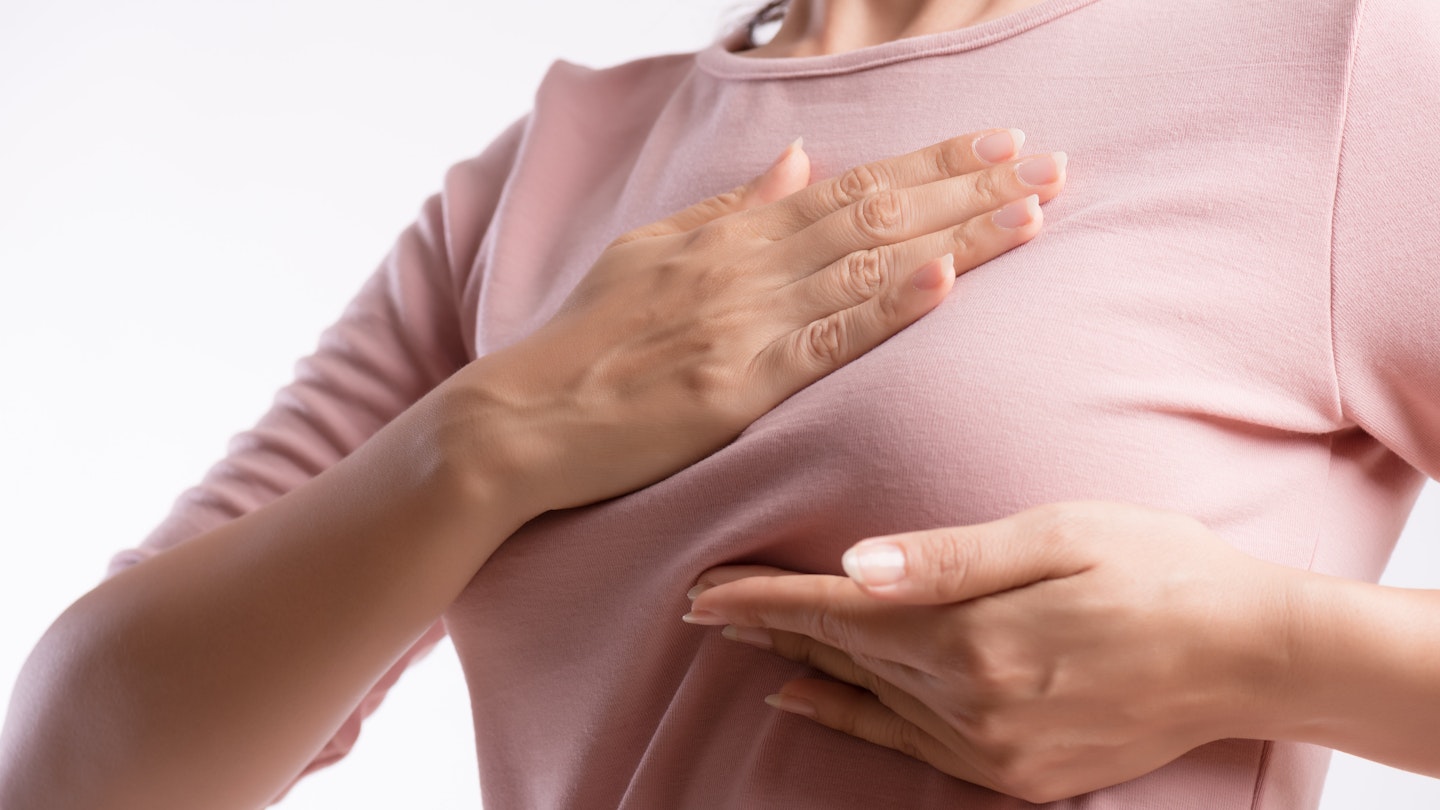The month of October marks Breast Cancer Awareness month. This year more than ever, it's important to be aware of the signs and symptoms of breast cancer after COVID-19 has affected many women waiting for screenings or treatment. With an estimated 1 million women having their screenings delayed it's vital we get to know our bodies.
Spotting the signs and symptoms of breast cancer
We spoke to Dr Penny Kechagioglou, Chief Medical Officer and Clinical Oncologist specialising in Breast at GenesisCare who shared her top tips on how to check your breasts.
Dr Penny’s warning signs:
• A change in your breast appearance, such as swelling, redness, change in size/shape
• A change in nipple appearance, such as inversion, discharge, a rash, skin puckering/dimpling or crusting
• Persistent pain in the breast or armpit
• A lump in the tissue of the breast or armpit area
"The best way to check for breast lumps (hard, non-mobile, maybe fixed to skin or chest wall) is lying down comfortably and using the opposite hand, palpate all quadrants of the breast in a clockwise or anti-clockwise motion.
"The tail of the breast that leads to the armpit should be felt, as well as a deep feel in the armpit looking for enlarged, hard and fixed lumps (lymph nodes). Palpation should be supplemented with observation of both breasts standing up and in front of a mirror.
"Ideally, both arms should go behind the head and once happy with breast appearances, then lean forward and look for any skin puckering or change in breast shape."
"Don't forget to check both breasts, areas under both armpits and areas above both collar bones." Says Dr Penny.
In terms of how often you should check, Dr Penny says, "Once a month is an adequate time for examination. More frequently it becomes an obsession. If we do a good clinical examination once a month and be aware of what is normal for you and present early when something doesn’t look right which, could be between your examinations that you do at home. If you see something isn’t right, you should come forward and see your doctor."
How has COVID affected breast cancer patients?
The pandemic has impacted breast cancer diagnosis and breast cancer treatments massively according to Dr Penny.
"Breast cancer screening has stopped to give priority to patients that came into hospital unwell with COVID-19. Although that has restarted again, restoring the service nationally will take some time which means many patients haven’t presented for their mammograms."
Many women have also avoided coming into a healthcare environment because of their fears of catching COVID.
"Because of this, some patients may have had symptoms of breast cancer but they didn’t present on time. This can have an impact in terms of reducing the chance of reducing the disease being cured."
In terms of treatments, both surgeries and radiotherapy treatments have been delayed for patients to reduce footfall in hospitals. Many patients waiting for surgery have had hormonal treatments and those having radio therapy have been receiving shorter treatment plans in order to help reduce patients' time in hospital.
What to do if you're worried about visiting a GP surgery or hospital
It's understandable you might want to avoid healthcare environments while the virus is still very much a threat, but rest assured, if you think you may have some of the symptoms of breast cancer it's important you get checked out by a professional as soon as possible.
"Healthcare facilities are taking precautions in terms of COVID-19 with social distancing measures, cleaning and equipment to keep it safe so you'll be safe to go an see your GP. Delaying your diagnosis could affect the prognosis and your chances of survival so it’s very important to seek help early." Says Dr Penny.
Secondary breast cancer
If you're concerned your cancer may have spread to other parts of the body, known as secondary breast cancer, there are some warning signs you should look out for.
"Some patients have back pain if the cancer has gone to the bones, some have more subtle symptoms such as fatigue or weight loss, again the important message is that if you feel something is not right in your body if you feel you’re activity levels have changed suddenly or you find a lump somewhere else in the body – the earlier you present to an expert, the more likely you are to have a better outcome.
"Metastatic breast cancer or secondary breast cancer is a condition we can treat and patients can live many years and have a good quality of life." Says Dr Penny.
Further support
If you have been affected by cancer or you are worried about symptoms, there are many helpful charities and resources that can offer help and support throughout your journey.
Breast Cancer Now - They're currently offering a lot of help to those affected by COVID and breast cancer.
Cancer Research UK - Have you been impacted by a different kind of cancer? Visit Cancer Research UK for further help.
CoppaFeel - To learn more about checking your breasts thoroughly.
Against Breast Cancer- They're looking to find a vaccine against breast cancer.
Pink Ribbon Foundation - Find lots of helpful information and support.
